The Missing, Series 2: Interview with Writers Jack and Harry Williams
Gavin Collinson
BBC Writersroom
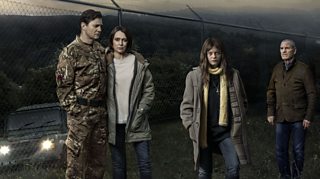
The first series of The Missing gripped audiences on both sides of the Atlantic and received nominations for several BAFTAs and two Golden Globes. However, when writers Harry and Jack Williams wanted to take the story forward, they were disinclined to return to the tale of Oliver Hughes and the desperate search by his father Tony (James Nesbitt) to find him. Instead, they decided to explore a different side of what happens when a child goes missing…
Question: What's the premise of the new series of The Missing?
Jack: The story opens in 2014 with a young woman returning to the town of Eckhausen, in Germany, and she collapses in the central village square. It's Christmas time, it's snowing. She's taken to the hospital and they quickly discover that she was actually abducted from the same town, 11 years earlier.
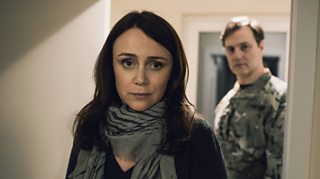
Keeley Hawes lands another Gem of a role in the new series of The Missing.
Q: What was your approach to writing this installment?
Harry: When we were writing the first series we never thought, are we going do ten of these or two of these series? We just thought we had this particular story to tell. But as that story was coming to an end, we felt we weren't done with the character of Julien Baptiste. It made us sad to say good-bye to him, and there were more stories we had to tell there. We didn’t want to recreate the same story, we wanted to do something different; so rather than losing someone it's about finding someone, and whether that is the happy ending everyone thinks it is.
Jack: Everyone assumes there's a happy ending when the person you've lost comes back. But the idea that it's just the beginning of another very long journey, and not necessarily a happy one, that's what we wanted to explore.
Q: What are the major themes of this story?
Harry: The theme of this series is freedom and imprisonment, born out of Alice, somebody who's been in their own prison for a long period of time. The show is also about how the past informs the present and things that happened years ago can have a ripple effect.
Jack: What's crucial about the show is that it's all about how people have changed, and one of the central questions you ask is what's happened to them in the meantime. How did they get from there to here? How did they get from 2014 to the present day? You look at Sam, Gemma, and Matthew in the past, and the way they respond to the return of Alice. Then you see them in the present, and they're so fractured and on different trajectories. It just shows the different way they deal with this, in quite a stark way.
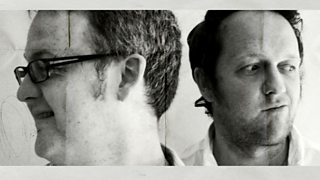
The creators and writers of The Missing: Harry and Jack Williams.
Q: Can you explain the complexity of the story?
Jack: The show has a lot of layers. But our goal was always to make sure it never feels that way. The fundamental thrust of the story is quite simple: it’s looking at the family at the heart of it and the way they react to Alice’s return. And of course, we've got Julien Baptiste on his mission to find the man that took her. The emotional drive behind this series is very simple and very primal.
Harry: It's probably more complex emotionally and narratively than the first series. But you can't underestimate the viewer. There's a lot to keep track of, but it does pull you in, and it feels clear what the story is.
Q: Why did you want to bring Julien back into the story?
Harry: For us, the stories we told in series one, with Tony and Emily, are all resolved. But Julien was not completely resolved. Jack and I felt we weren’t done with him, quite yet.
Jack: We came in across him in series one, at the end of his career, in 2006. And we just knew a man with a career that long, has a lot of skeletons in his closet, a lot of things left remaining to fix.
Watch the trailer for series 2 of The Missing.
Q: How did you go about creating the new characters, then casting them?
Jack: Right away, we knew we had to find a family in the Websters who we would relate to, and who could go on a very complicated emotional journey. We wrote the part of Sam for David Morrissey, because he can do so much. He was always about showing what he’s thinking, rather than saying it.
Harry: With David, you believe him as a soldier. He's man's man.
Jack: Then we went about finding the family that felt convincing, that had been together a long time. We’re delighted to have Keeley Hawes as Gemma and Jake Davies, who plays their younger son, Matthew. With Keeley, she's got a very innate warmth about her, who’s very relatable and someone who I think a lot of people will connect with. She goes on a very interesting journey over the series, in how she connects with her daughter, and the mission she goes into during present day. Keeley has a lot to do and plays Gemma with a lot of nuance.
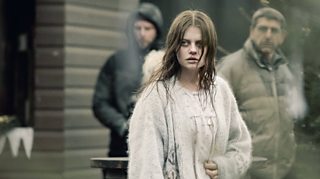
Curiouser and curiouser… Alice is played by Abigail Hardingham.
Q: What about Alice?
Jack: Creating Alice was definitely a challenge, because there are so many facets you want to bring out with someone who's been through something like this. She was kept a prisoner for 11 long years. There’s so many things that would happen psychologically and emotionally with what she'd been through and what she now feels returning to the world.
Harry: She has an almost ghostly, supernatural quality. There's a huge mysterious power that she brings to the story, because everybody's handling her with kid gloves.
Jack: She is the mystery. What happened to her? Where has she been? What has she been through? Who did it? That's all embodied in her. So she is the central mystery of the show.
Q: What about her younger brother Matthew?
Jack: Matthew turned from being the little brother to a man, utterly changed in the present day. He’s hanging out with these twins, who are clearly, no good at all for him. He's on a course to self-destruct.
Q: What was behind the settings this series?
Jack: We wanted to keep it outside of England, and keep the international feel that the first series had. The military base was something that came quite early, because it's always fascinated us as a setting. And the notion of being somewhere that’s an institution with a lot of rules, where you're told what to do, and how to keep order. And it's also really interesting because you've got a lot of British people slightly removed from their own country, slightly isolated.
Harry: It also gives you access to different kinds of stories like the war and Iraq, countries that you wouldn't otherwise have access to, in an incredible way.
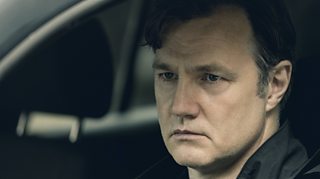
David Morrissey: We will find him in far-off places.
Q: Why choose Iraq?
Jack: A lot came out of the decision to set it on a military base. And we always knew we wanted to push Julien to the furthest emotional and geographic extremes. So when we established the show, we started in Germany. And then we’d start the present day somewhere else entirely. And it makes you wonder how we got there, and how the two are connected. It also furthered the theme of freedom versus imprisonment. It’s not just in Iraq, but in Northern Iraq, in a disputed region, between Kurdish soldiers, and ISIL soldiers. So, again, it's in the middle of an ongoing conflict, about who owns what, and who's in charge.
Harry: On a cruder level, in the first series we were in that one place. And it was very dark, and rainy, and then summery. This time, it’s much more extreme. You've got the snow, Christmas, and the bleakness of this military base, this concrete mass, in the middle of the German countryside. Very grey. Contrasted with the washed out, Iraqi desert. It was appealing to show that this second series is going to more dangerous places.
Q: Back to Julien, how does he help keep the story moving forward?
Harry: The audience is smart these days and they’re going to start catching onto the plot points, and how the narrative is moving forward. For Julien, it’s always important that he's with them on that journey so we can connect to him.
Jack: We want Julien to be as smart as the audience is. And that's not to say that we don't always catch him up. We do like some dramatic irony, and sometimes we reveal things to the audience, that Julien hasn't yet caught up to. But you always understand why. I think there's nothing more frustrating than shouting at the screen, watching someone not do the obvious things. And Julien as a detective, he's been doing this for a very, very long time. He's seen every aspect of this kind of case and understands human behaviour.
Harry: For us, the exciting thing about his journey was that we're seeing this measured guy in series one, and now he's out of his comfort zone. No one believes him, he's butting up against walls, and he's trapped. And he's starting to doubt himself, which is almost the most exciting part of that journey.
A moment from the new series of The Missing.
Q: Remind us who the character of Julien Baptiste is based on?
Harry: Our dad did a documentary, Dance With A Serial Killer, about a French detective called Jean-Francois Abgral, for the BBC. He was a very impressive fellow and he spent a lot of time with us when they were making it. We were struck by his humanity and that he was this regular, charming, lovely man that everybody completely fell in love with. He would tell us these stories about impressive cases he had solved. He was clearly just a genius detective, so he was the inspiration for Julien.
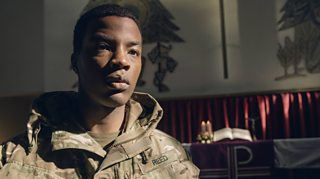
Taken as Reed: Daniel Ezra (Murdered by My Boyfriend) in The Missing.
Q: Did you do a lot of research?
Jack: We have collectively read almost every abduction account there is and it's pretty depressing reading. But it's amazing how many patterns there are, and how quickly a long-term captivity can fall into the patterns of what looks scarily like family life. It’s a very twisted kind of domesticity.
Q: Why do you incorporate the thriller element into what is essentially a character-driven drama?
Jack: There’s so much good TV, you need a reason to come back. You need a reason to keep watching. When we write, we really try to think about how to end an episode in a place that makes me want to come back and write the next one.
Harry: And you have to do it in a way that isn't cheap, that’s important to the story, and helpful to moving forward with our characters.
Jack: If you really care for the character in that situation, if you really want them to achieve what they're going to achieve, then proper adrenalised moments against a backdrop of something that is quite intense and psychologically dark, can provide an interesting balance.
Q: How do you plant the clues throughout the series?
Jack: There are so many ways of planting clues. We ask ourselves the same question the audience would ask. And if we're intrigued by knowing how to solve it, then hope that everyone else will be too. It’s quite a fun one to do. Then you go, what will these characters think, and work backwards into thinking, how do you play fair with the audience. But it’s really important that you know exactly where you're going, and what it all amounts to.
Harry: We try to make sure, that every question we pose has an answer somewhere in the series. The answer may be three episodes ago. But it's always there.
Jack: One thing that struck me, after I got through all the scripts was that we really wrapped up all the loose ends. Usually, there's something dangling out there, but it all came together.
A moment from the new series of The Missing.
Q: What’s your writing process like?
Jack: We wrote separately before we wrote together, and we found ourselves just asking each other for ideas and sitting down and talking about what we might do next.
Harry: It makes the process more fun, because you're getting someone else's opinion instantly. So hopefully, it means the scripts come out in a bit better shape than if it was me on my own.
Jack: I don't think we ever really have massive disagreements when we're writing. We always ask, is that the right thing? Can we do better? And both kind of know when it is the right thing.
Q: What are you most excited about for this series?
Harry: Filming in a different territory like Morocco (for Iraq) was an exciting thing. We’d done the bleak European look, so placing it somewhere sunny and washed out felt so against everything we’d done before, it was just exciting to see that.
Jack: And when we wrote episode one, one of the first ideas we had was going from Julien with his shaggy hair and his beard, and then we cut to him in Iraq with a shaved head. And we're like, why is he there? Well, I don’t know, but it will be fun to find out.
You can delve further into the Webster’s world by visiting the official website for The Missing, series 2.
